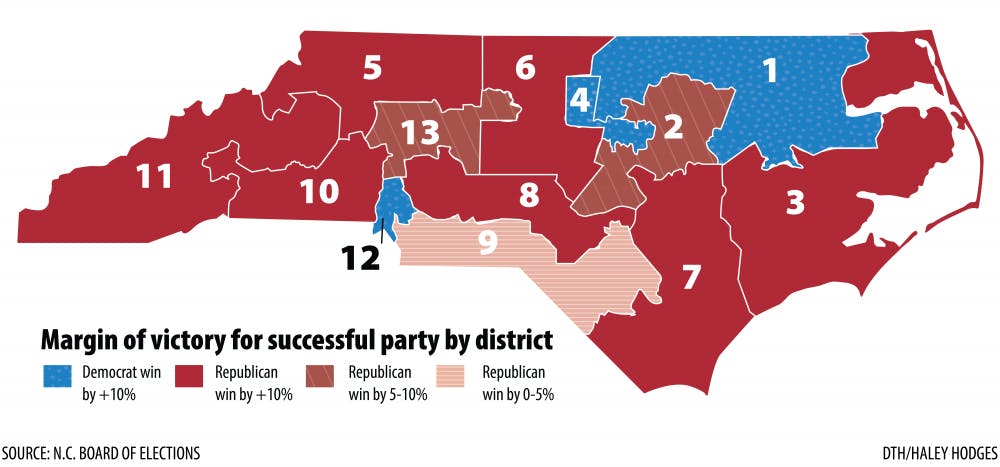In a potential landmark court case on partisan gerrymandering, the U.S. Supreme Court heard oral arguments regarding North Carolina’s lopsided congressional districting on March 26.
Allison Riggs, an attorney representing the League of Women Voters, said the court could set a dangerous precedent by deeming extreme partisan gerrymandering constitutional and could exacerbate future gerrymandering.
“This case is not the first North Carolina voting case to reach this court this decade,” she said. “But it represents the most extreme example of a non-responsive legislature that believes that this court will implicitly endorse unfettered partisan manipulation in redistricting by declining to rein in this most egregious example."
The case Riggs presented against the North Carolina maps was based on a three-prong test for diluting votes, including partisan intent in drawing districts to disadvantage a political party, along with effecting the state and district level and justifying packing or dividing voters.
Jonathan Mattingly, a math professor at Duke University, simulated over 24,000 congressional maps in North Carolina with nonpartisan criteria that were presented at the hearing. Fewer than 0.7 percent, approximately 162 maps, resulted in a 10-to-3 Republican majority.
Paul Clement, an attorney representing N.C. GOP lawmakers, said 162 of 24,000 nonpartisan maps was a significant enough number that partisan intent could not be proven.
He said if the Supreme Court decided to rule against partisan gerrymandering, it could result in redistricting cases flooding the court’s docket and endowing the court with significant political power.
“And once you get into the political thicket, you will not get out and you will tarnish the image of this court for the other cases where it needs that reputation for independence so people can understand the fundamental difference between judging and all other politics,” he said.




